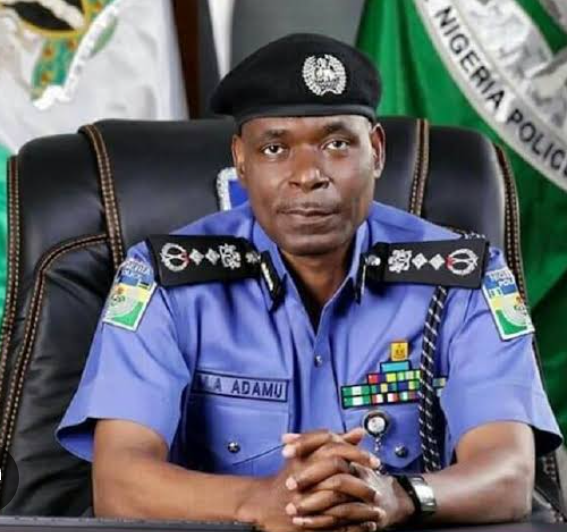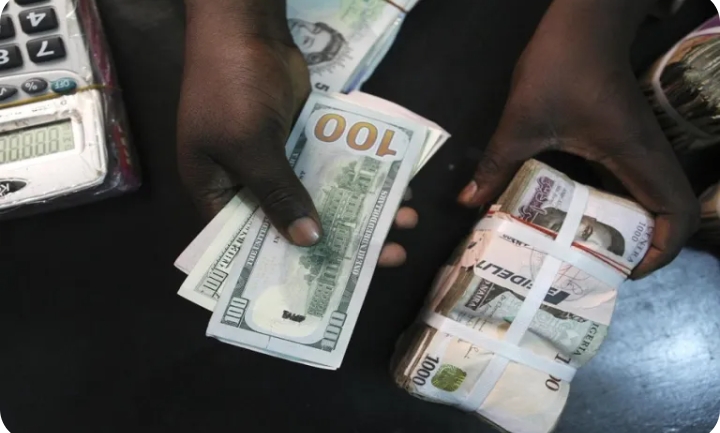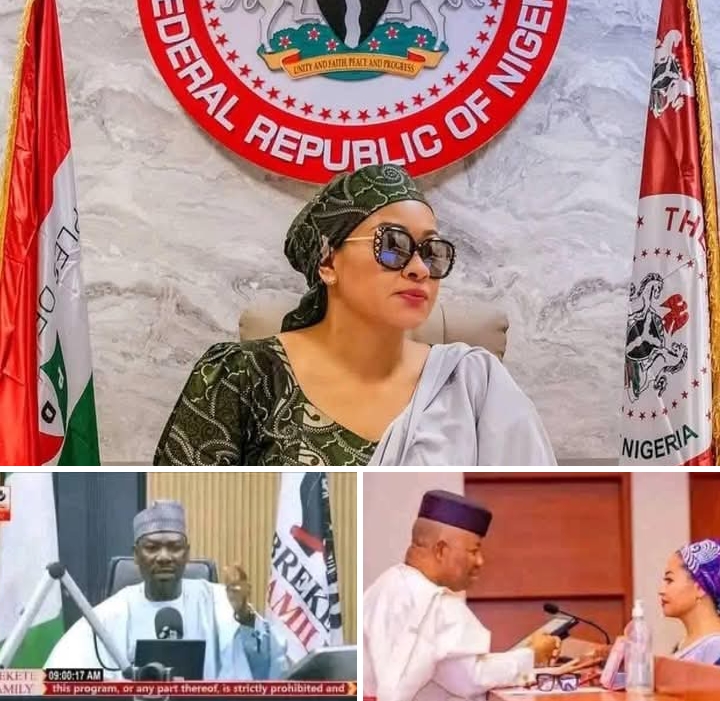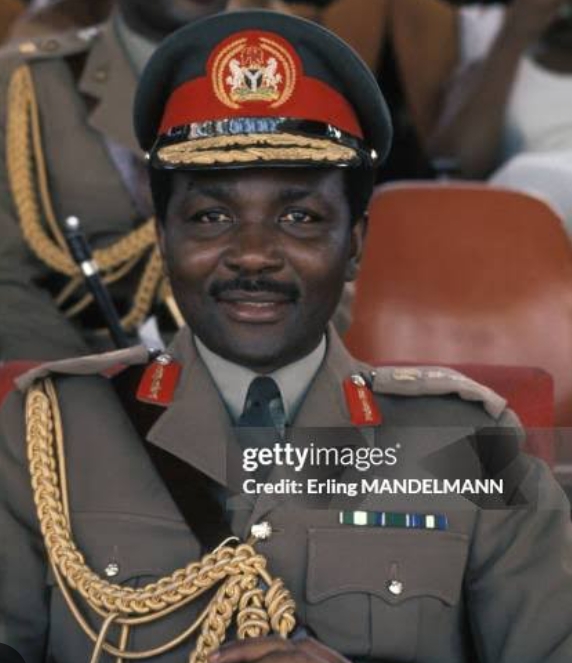News
Intense lobbying for IGP Egbetokun’s successor begins

By Kayode Sanni-Arewa
The race to take over from Inspector General of Police (IGP) Kayode Egbetokun has intensified as his retirement draws near.
Egbetokun, appointed on June 19, last year, is due to bow out of service on September 4 when he will turn 60.
However, there is uncertainty over whether he will go on that date or enjoy an extension of stay in line with the amendment to the Police Act.
The amendment, an Executive Bill, passed by the two chambers of the National Assembly on July 31, allows the President to extend the tenure of an IG beyond 35 years in service or 60 years of age, depending on which one comes earlier, to enable the sitting IG spend his full four-year tenure.
The passed bill is, however, yet to be signed by the President to become an act.
This hazy situation has created tension in the high command of the police with some officers from Commissioners of Police (CPs), Assistant Inspectors-General (AIGs) and Deputy Inspectors-General (DIGs) cadres, lobbying intensely for the IG’s position.
Some sources in the police said not signing the amendment to the Police Act by the President, will make it impossible for Egbetokun to continue in office.
Others said there is still time between now and September for the President to sign the amendment in which case it will become law and the IG might benefit from it, should the President extend his tenure.
Yet, others said should the President signed the amendment and it becomes law, it ought not to take a retroactive effect, which means Egbetokun should not benefit from it.
There are eight DIGs, 46 AIGs and 125 CPs. Four of the seven DIGs are due to retire between September and December.
The retirement dates for the DIGs are Bala Ciroma (3/3/2025); Emeka Frank Mba (18/5/2027); Sylvester Abiodun Alabi (31/12/2024); Daniel Sokari-Pedro (18/12/2024); Ede Ayuba Ekpeji (21/10/2024); Bello Makwashi Maradun (25/12/2024); Dasuki Danbappa Galadanchi (3/3/2025); and Sahabo Abubakar Yahaya (15/9/2025).
Although the IGP enlisted in the Nigeria Police Force on March 3rd 1990, the Act says officer shall retire after serving for “35 years or until he attains the age of 60 years, whichever is earlier.”
It was learnt that the IGP has tied his retirement fate to the final decision of the President.
The amendment, which is creating tension in police, was the inclusion of Section 18(8A) by both the Senate and the House of Representatives in the Nigeria Police Act, 2020.
Section 18(8A) of the Nigeria Police Act 2020 was amended as follows:
“Notwithstanding the provisions of subsection (8) of this section, any person appointed to the office of Inspector-General of Police shall remain in office until the end of the term stipulated in the letter of appointment in line with the provisions of Section 7(6) of this Act.
The new amendment allows the President to retain an IGP after serving for either 35 years or attaining 60 years.
The law also pegs the tenure of any IGP to the four-year term of his or her appointment as stipulated in the letter given to him or her by the President.
A source said: “Despite the fact that the President has not spoken or assented to the new bill, some senior police officers have started lobbying. They include some DIGs, AIGs and even Commissioners of Police.
“Some of them are jostling for the office in anticipation of a comprehensive overhaul of the NPF structure. We have had precedents in the system before.”
The source added: “There is suspense within the Force. No one knows if the four DIGs, who are due for retirement on or before December 25th, will benefit from the new law or not.”
Another source said some officers are alleging that tenure extension for Egbetokun may deny them required promotion or lead to stunted career growth.
The source further explained: “There is uneasy calm in the Police on whether or not the IGP will get tenure extension by virtue of the amendment to the Nigeria Police Act.
“Tenure extension in the twilight of retirement may lead to a distortion of the system. It will expose the police system to lobbying and desperation to get to positions whether deserving or not.
“Some of those in line to succeed Egbetokun believe that tenure extension will be unfair to them. They believe the President should not apply a law at the last minutes.”
But another source said: “I think the President is weighing options in the best interest of the country and the Nigeria Police.
“The President is the Commander-In Chief of the Armed Forces. He determines the security architecture of the country. In the light of the amendment to the Nigeria Police Act, he has the prerogative to ask Egbetokun to complete a four-year tenure or proceed on retirement.
“Let us wait till after his assent to the Bill. But any decision he takes now has a legal basis. In the past, the tenure of some IGPs attracted court cases.”
Part 111 Section 7 (6) of the Act, which repealed the Police Act Cap. P19, Laws of the Federation of Nigeria, 2004, prescribed a four-year single tenure for a person appointed to the office of the IGP subject to the provisions of clause 18 (8), which stipulates that every police officer shall, on recruitment or appointment, serve in the Nigeria Police Force for 35 years or until he attains the age of 60 years, whichever is earlier.
This is not the first time the Nigeria Police Force will be thrown into tenure extension controversy.
Ex-President Muhammadu Buhari extended the tenure of Suleman Adamu as IGP.
Former IGP Usman Baba also enjoyed the same privilege from Buhari.
Baba turned 60 and due to retire on March 2023, but he stayed in office until President Tinubu took over power from Buhari and named Egbetokun as his successor three months later.
(The Nation)
News
See How Naira Is Fairing Against The Dollar In Black Market Today February 24, 2025

By Kayode Sanni-Arewa
The exchange rate for the U.S. dollar to the Nigerian naira in the parallel market (commonly known as the black market) has been updated for Sunday, February 23, 2025. According to Bureau De Change (BDC) sources, the rates are as follows
Buying Rate: ₦1,520 per dollar
Selling Rate: ₦1,530 per dollar
It is important to note that the Central Bank of Nigeria (CBN) does not officially recognize black market rates and advises individuals to conduct foreign exchange transactions through licensed financial institutions.
CBN Official Exchange Rate
Highest Rate: ₦1,509
Lowest Rate: ₦1,491
News
Senate invites ‘Brekete’ Family host Ahmad over broadcast controversy

By Kayode Sanni-Arewa
Abuja, Nigeria – The Nigerian Senate has summoned Ahmad Isa, popularly known as the Ordinary President of Brekete Family, to appear before it on February 27, 2025. The summons is reportedly linked to a recent broadcast of the Brekete Family radio show, in which Senator Natasha spoke about her grievances with Isa.
The Senate’s directive has sparked debate, particularly over its warning that Isa could be deemed a criminal if he fails to comply. Critics argue that such a stance may be an attempt to stifle press freedom and curtail the activities of Brekete Family, a well-known platform for social justice and human rights advocacy in Nigeria.
Isa, whose work has earned him widespread recognition—including an honorary doctorate from the Federal University Lokoja—has built a strong following through his intervention in public grievances and human rights cases. Many Nigerians regard Brekete Family as a voice for the marginalized, providing a platform for citizens to seek redress on issues ranging from governance to social welfare.
The Senate’s move has drawn mixed reactions, with some viewing it as a necessary step to address concerns related to the broadcast, while others see it as an overreach that could undermine media independence and freedom of expression in the country. It remains to be seen how Isa will respond to the summons and what impact this development will have on his widely followed program.
News
Gazette Confirms Gowon Actually Ordered Awolowo’s Release, Not Ojukwu or Ironsi

By Kayode Sanni-Arewa
A recently resurfaced official gazette from the Federal Military Government has confirmed that Chief Obafemi Awolowo was released and pardoned by Lt. Colonel Yakubu Gowon on August 12, 1966, ten days after his actual release on August 2,1966.
The document puts to rest claims by Radio Biafra that Lt. Colonel Emeka Ojukwu or Major General Aguiyi-Ironsi played any role in securing Awolowo’s freedom.
According to the document, upon his release from Calabar Prison, Awolowo was received in Lagos by Lt. Colonel Murtala Muhammed, who personally drove him to Dodan Barracks to meet with Head of State Lt. Colonel Gowon. However, the journey from the airport proved challenging as a massive crowd, organized by Alhaja Asabi Abibat Mogaji, mother of Nigeria’s current President Bola Ahmed Tinubu, flooded the streets to welcome the revered statesman.
The gazette also refutes any suggestion that the coup plotters of January 15, 1966, including Majors Chukwuma Nzeogwu and Emmanuel Ifeajuna, attempted to release Awolowo. In fact, there is no record of them making any effort to contact or rescue him from detention. Some analysts argue that had Awolowo been politically active at the time, he might have been among those executed during the coup.
This revelation further solidifies Gowon’s role in shaping Nigeria’s political landscape during a tumultuous period, while also challenging revisionist narratives surrounding Awolowo’s release
-

 News24 hours ago
News24 hours agoREVEALED! Gov Fubara Accused of Paying N4.8Bn Monthly to Ikenga Ugochinyere
-

 News18 hours ago
News18 hours agoBabangida’s Book is filled with distorted facts, collection of lies, says Dele Farotimi
-

 News23 hours ago
News23 hours agoWhy Buhari govt was shoved aside – IBB
-

 News18 hours ago
News18 hours agoEx-UFC Champion, Adesanya replies critics
-

 News18 hours ago
News18 hours agoSaudi Arabia donates 100 tonnes of dates to Nigeria as fasting approaches
-

 News23 hours ago
News23 hours agoHow CBN Spent $8bn On Naira Defence Against Dollar At FX Market
-

 News18 hours ago
News18 hours agoNDPC Finally Secures NJI’s Support for Data Privacy Right in Nigeria
-

 News23 hours ago
News23 hours agoKill your 2027 election, PDP, LP chieftains advise Atiku







